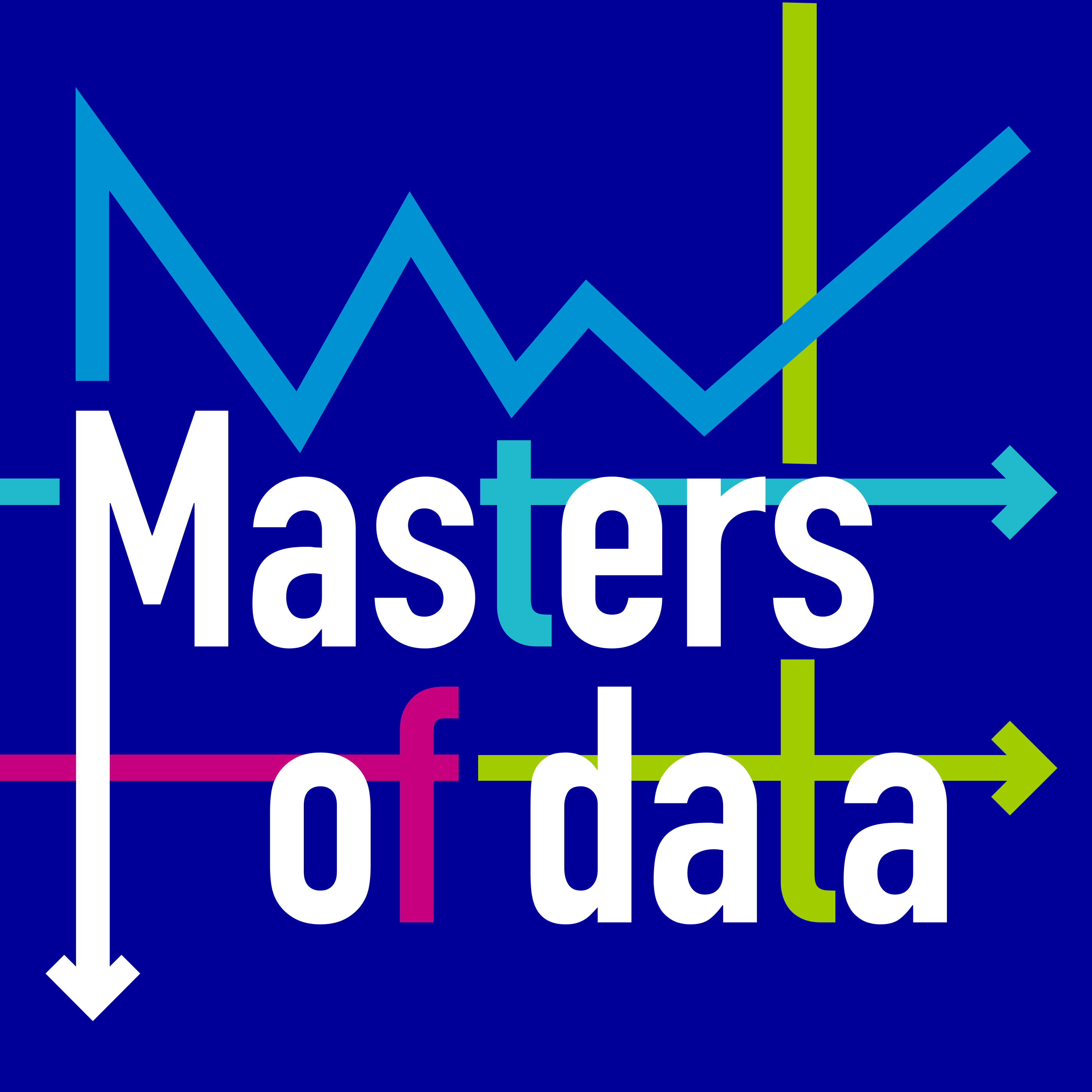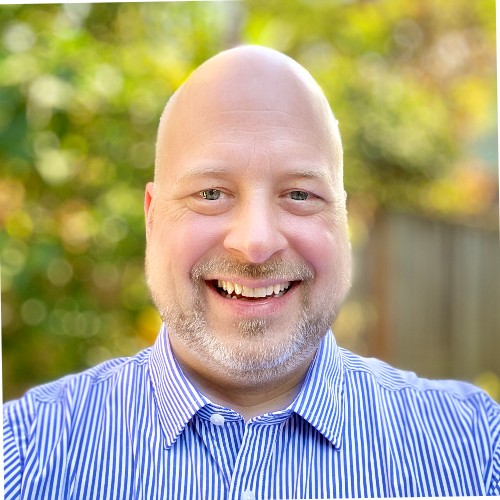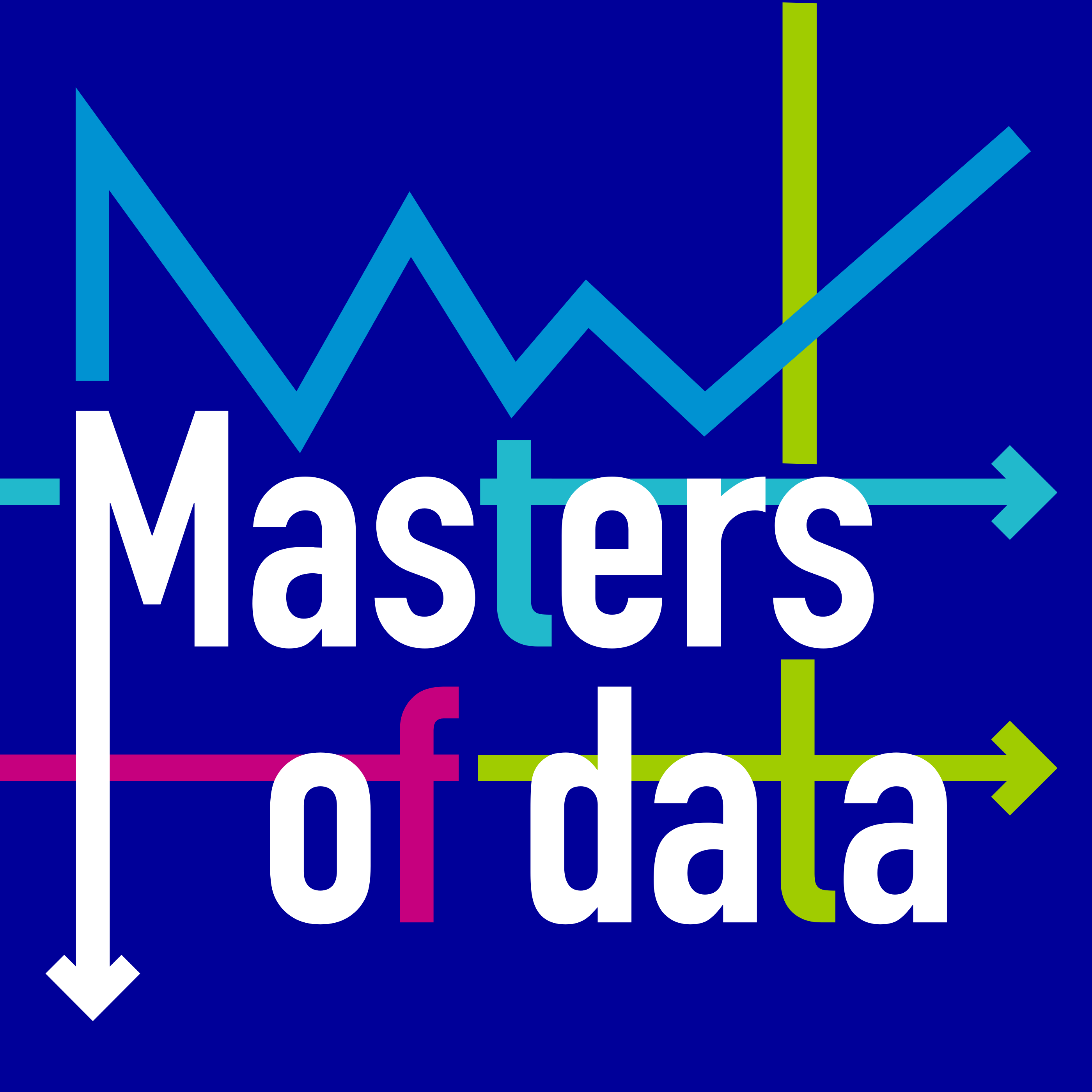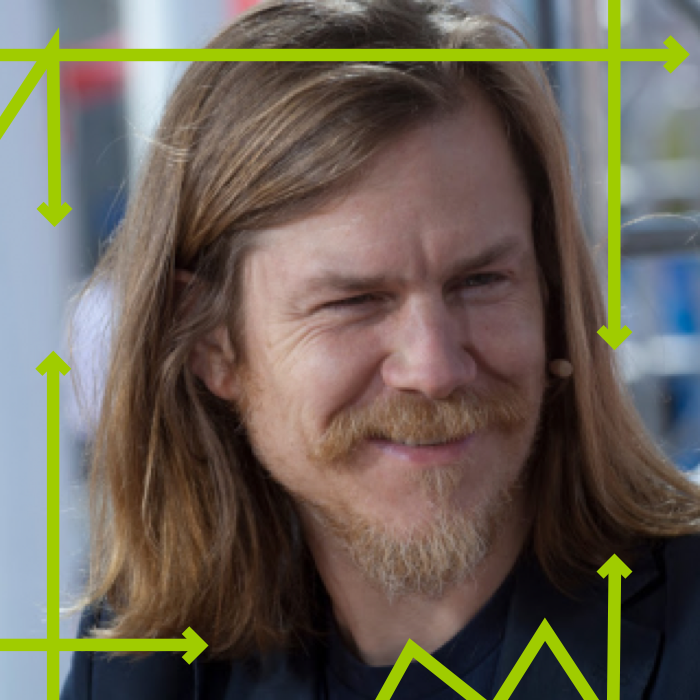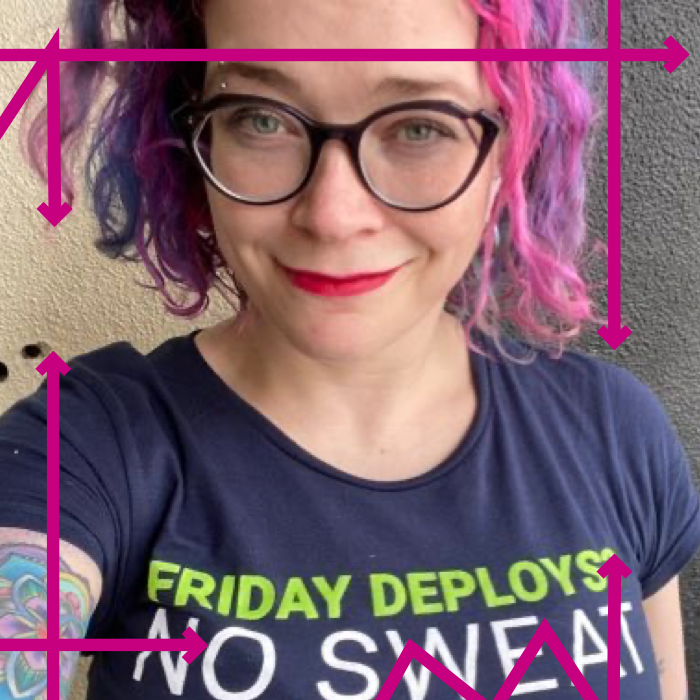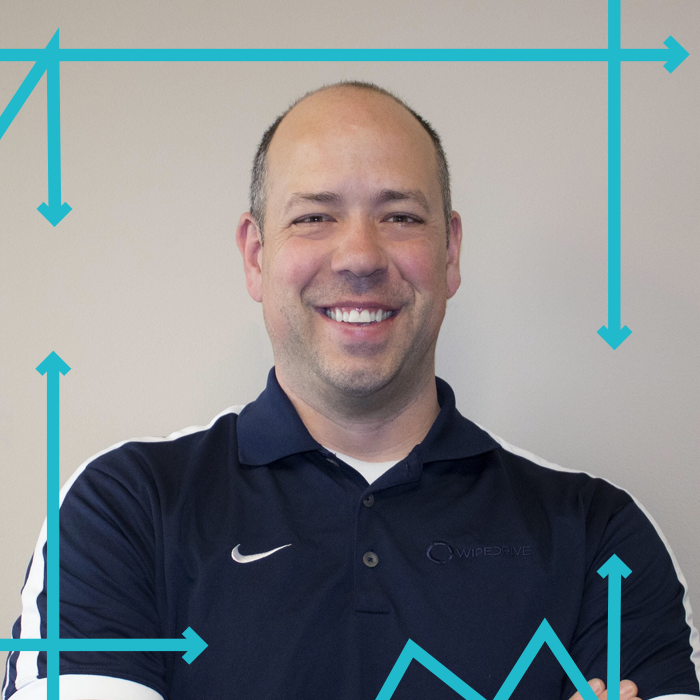The changing culture of IT (Guest: Nancy Gohring)
- 0.5
- 1
- 1.25
- 1.5
- 1.75
- 2
Ben Newton: Welcome to the Masters of Data Podcast, the podcast that brings the human to data, and I'm your host, Ben Newton. This episode is in a series of interviews that I did on the floor of Sumo Logic's 2019 Illuminate conference. In this episode, we talk with Nancy Gohring, a senior analyst at 451 Research.
Ben Newton: I have known Nancy for a few years, and I'm always impressed with her perspective on the culture of IT operations, and the impact of the massive changes in the last few years. And that's what we talked about. So without any further ado, let's dig in.
Ben Newton: Welcome everybody to another episode of the Masters of Data Podcast, the podcast that brings the human to data. And I'm excited to have Nancy Gohring with me. Welcome, Nancy.
Nancy Gohring: Thank you. Nice to be here.
Ben Newton: Nancy and I have known each other for a few years now, so I'm happy I finally convinced you to be on the podcast. So it's good to have you here. Nancy is with 451 Research. She's a senior analyst over there. It's actually, we can start off that way. How do you end up being an analyst? What leads you down that track?
Nancy Gohring: Yeah, it's a weirdly common path that I took. So I was a journalist for about 20 years and covered a whole bunch of stuff. I was freelance for a while, but it was most of the time in tech, or tech business, in some form, way, shape or form. Spent a lot of that time covering enterprise software and enterprise technology.
Nancy Gohring: So it's kind of a good training ground to become an analyst. Right? Because I'd already spent all these years kind of digging into these geeky, enterprise tech kind of topics. So, yeah.
Ben Newton: Yeah, that makes a lot of sense. You knew how to communicate. You'd already spent a lot of time understanding the space.
Nancy Gohring: Exactly.
Ben Newton: And how long have you been an analyst now?
Nancy Gohring: Well, it's like three and a half years.
Ben Newton: Okay.
Nancy Gohring: Something like that. Yeah.
Ben Newton: You still glad you made that decision?
Nancy Gohring: Yeah, I do. I like it. It's fun. It's been a lot of fun meeting people like you. It's cool.
Ben Newton: Thank you, I appreciate that. Well, you know, Nancy, you and I have talked about this multiple times. I always love the way you think about, and I don't know if this is the way you think about it, connecting kind of the human experience to technology. Because I think it's really easy. I've been in this space for almost 20 years, and a lot of times, as we talk about the tech, we're like, "Oh, it's the new thing." Like, I saw the new ... Even Dilbert has a cartoon about kubernetes now.
Nancy Gohring: I know, I saw that. That's ... Oh my God, I was ... I feel like our universe was over the moon for that.
Ben Newton: I know, I know. It's fantastic.
Nancy Gohring: Mainstream.
Ben Newton: [inaudible 00:02:29] the container. But we have a tendency to think about the technology, but the reality is, it's people doing the work, that are organizing themselves in certain ways and are struggling to adapt. And so you spend a lot of time thinking about that, right? About organizational changes, stuff like that.
Nancy Gohring: Yeah. Yeah. Recently, I think it's becoming clear that that's, it's like the harder piece, right? You can have great technology. I mean, it is hard to get the great technology, but that's one piece, and there's an almost bigger piece around how you use it, and sort of the weird political stuff that goes on in a lot of organizations.
Nancy Gohring: Right now, in our organization, or in our universe, there's a lot of talk about which tools you use and what situation and how many tools we have. And so, the interesting question, now, is how do you change as a business what you're doing in that regard? How do you ... Do you just have to tell people they have to stop using something and start using something different? And what's their reaction going to be? And then, what's the impact going to be on what you're doing if you just tell someone they can't do something the way they want to do it?
Ben Newton: Right. Right, well, because people just naturally resist change. Everybody does.
Nancy Gohring: Yeah, for sure. Yeah, yeah.
Ben Newton: I remember when, yeah, I mean, this would've been about 2010, when I first started getting involved in the, quote, "DevOps movement." Right? And I just remember everybody at that point in time was arguing about tools. But what always hit me about it, it always was about some sort of change underneath the surface.
Ben Newton: It seems like this is also born up in a bigger societal change, because there's kind of a movement from kind of top down command and control structures to just more like grassroots thing. And the tools have part of that. Because if you want a command and control structure, you would want people to interact with tools in certain ways. Whereas if you want them to be free and be, you know, somewhat independent, you might not want them to work that way.
Nancy Gohring: Well, and I think what gets interesting is when an organization embraces that idea in order to subtly create change, so to try to convince people that the change is their idea rather than dictating it. Right?
Ben Newton: Right.
Nancy Gohring: And sometimes, it's not as ... That makes it sound sort of malicious, but right. You can introduce someone to something, and hopefully they're going to like it, and then embrace it on their own, rather than saying, "This is how you have to do it."
Ben Newton: Yeah. What does that actually look like? So, how do you convince somebody that something like that is their own idea?
Nancy Gohring: I think by demonstrating that it's good for them.
Ben Newton: Yeah.
Nancy Gohring: So if you introduce them to something, say it's a tool, they start using it, it actually works great. It solves their problems. They're going to want to do it, right? And keep running with it. And then maybe introduce their peers to it. And then, again, it feels more like a grassroots kind of thing than a top down kind of thing.
Ben Newton: Does that mean that you see people doing this in enterprise companies, like in small groups? Like they start small and then like work away?
Nancy Gohring: I do, but it's often a top down type of thing. But the people who are trying to elicit this change try to make it feel like that grassroots thing. So they introduce something to one group and use that group's success as a poster child to make it spread into other groups. But it's actually behind the scenes being orchestrated by someone at a higher level.
Ben Newton: I feel like I am ... There's a couple other DevOp IT [inaudible 00:05:35] reports I've seen where they talk about that, because there's a fine balance. Because if you don't have top down management pushing and supporting it, then it's not going to happen.
Nancy Gohring: Right.
Ben Newton: You're not going to have a safe space to operate. But if they got their fingers too much in it, then it feels like it's a mandate.
Nancy Gohring: And then there's some resistance. Yeah. Yeah, totally. I know, it's interesting. And I think the other thing that gets interesting here is language and how people define things. Because there's a certain kind of centralization that I've been talking about right now. Centralization is sort of a dirty word in DevOps, right?
Nancy Gohring: Because part of DevOps is that you've got these autonomous groups that can do what they want. They choose the tools they want, they operate the way they want. It's decentralized. Right?
Ben Newton: Right.
Nancy Gohring: But that can create some problems. And so I'm seeing some organizations centralize some functions, and it's not necessarily a bad thing. And in fact, it can actually be a real benefit to these people in the DevOps groups. So, but maybe you don't want to call it centralization, because that's a dirty word.
Nancy Gohring: And I'm also hearing people kind of look down their noses at the idea of a center of excellence, even though I've seen some people saying, "Don't do a center of excellence, do this." But their description of this, actually, to me, sounds exactly like a center of excellence. So, that's interesting how language becomes really important here, as well.
Ben Newton: Oh no, no, absolutely. When you say, that it does make a lot of sense, because having been in this area for so long, I remember the whole idea of a CIO, the chief information officer, was kind of new when I started out.
Nancy Gohring: Oh yeah?
Ben Newton: Yeah. And it was ... Because basically, a lot of them were brought on to get the servers out of closets.
Nancy Gohring: Yeah.
Ben Newton: Because every department had a couple of servers in the closet. It's like, "That's our website in the closet."
Nancy Gohring: Right.
Ben Newton: And so centralization was necessary to kind of bring costs down and bring standardization, but then, that became its own problem. And so now, you have that pull back from that.
Nancy Gohring: Exactly.
Ben Newton: DevOps was like a pushback.
Nancy Gohring: But it's only pieces, maybe, that make sense to be centralized. So how do you get that balance, right, between the benefits of decentralization and then the benefits of some centralization? I think that's the difficult balance.
Ben Newton: I'd be interested to see what you think about this, because even people who are on kind of the periphery of this, they'll hear the terms, right? People might've heard of DevOps, they might've heard of something like site reliability engineering.
Nancy Gohring: Yeah, yeah.
Ben Newton: Even people who should know what that means half the time don't. But what was interesting to me about that is, I went back and read the book at a Google on it, and was looking back at the thought part, and it was basically like, "Look, we knew we needed to make our sites highly available. We wanted to have high reliability for customer satisfaction. And we had engineers, we told the engineers to do it, and then they basically became site reliability engineers."
Nancy Gohring: Yeah.
Ben Newton: But it's to that point is, it actually was centralized. They ended up putting a centralized function. Even in something as uber cool and modern as Google. They ended up still creating a centralized function, but it wasn't the same. It was distinct. Does that make sense to you?
Nancy Gohring: Totally. Yeah, and I mean, I think that's kind of what we're seeing happen in a lot of enterprises these days, is they're transitioning what used to be a centralized IT ops team into something that they're calling an observability team, or something like that, but that is populated by [SREs 00:08:40]. So it's like they're shifting the IT ops team into the model that Google has.
Nancy Gohring: It's still centralized. It's not the same thing. Right? They're not doing the same things, but it is still centralizing some things. But it's interesting, as you talk about [SREs 00:08:53], because the thing that I find hilarious about [SREs 00:08:56] is, there is a book, as you referenced, and not to say that everyone has to do exactly how Google did, but it's a book with a lot of detail.
Ben Newton: They are Google.
Nancy Gohring: Yeah, exactly. And yet, when I talk to people who have [SREs 00:09:08] or are [SREs 00:09:09], they're all dramatically different in terms of what their jobs are, what their team structure is. So, people are still interpreting it totally differently. Right? And again, maybe some of that is just due to culture of their particular organization, right? They're picking the things that make sense and doing those, but they don't necessarily have to do everything that Google laid out in the book.
Ben Newton: You have to be able to do that. I feel like every single one of these trends, agile programming was the same way, because it was like, it could be very, very strict, and then you could lose sight of actually what it was meant to do, which was actually ship code, and actually be able to build products. And I think it's the same thing with DevOps or site reliability.
Ben Newton: Just putting a name on it is not enough. But on the other hand, if you get wrapped up in the aura of it all, you lose track of ... The whole point was to actually be able to keep your site highly available without people being stressed and losing their hair.
Nancy Gohring: Yeah, yeah. But the funny thing is, once things become hot, like [SREs 00:10:03], like the term [SREs 00:10:04], I've actually talked to companies that say that they're just throwing in the term [SRE 00:10:10] in job descriptions. It has nothing to do with the job itself. Basically, it could just be an ops job, like an old school ops job. But you throw in [SRE 00:10:19] in hopes of, I don't know, getting more eyeballs or getting more interested people.
Ben Newton: Like, "Now I look cool."
Nancy Gohring: Exactly. Pretty much. It's kind of funny.
Ben Newton: I was thinking about that the other day. It's just part of the problem with LinkedIn in general, because, you know, it's just people putting stuff in there. Like, that's not your job title. I can't tell what you do from that description.
Nancy Gohring: Yeah, there are some creative titles these days.
Ben Newton: I think one of my old friends here, that he called himself the ... I have actually seen this twice now. He called himself the chief unicorn hunter, and something protector of the galaxy, besides. If he listens to this, he'll know who he is. And I was like, "I don't know what you do, but I like that. I like that. It doesn't matter what you do. I like that title."
Nancy Gohring: It's a little more creative.
Ben Newton: In context of what you do, Nancy, you talk to a lot of different ... You talk companies across the spectrum, right? Like, sometimes it's talking to cool 50 person startups. [crosstalk 00:11:08] talking to ginormous, 100,000 person companies.
Ben Newton: So, do you feel like some of the things we're talking about, this whole movement from centralized to decentralized, adopting of DevOps, or whatever these like newish practices, are they actually becoming more prevalent in the really large companies? Is it still kind of early days?
Nancy Gohring: No, I think they are, but I think that they're going to be different, or executed differently, than a born in the cloud company. Right? And that's actually a kind of interesting bifurcation that might be interesting to watch how that evolves over time, right? Because you've got some vendors that pop up that are very focused on the cloud native, and that's fine, right? That's a fine market segment. But their needs are often so different than an enterprise, you know?
Nancy Gohring: And sometimes, you see those vendors being super critical of stuff that enterprises are going to do, and there's not necessarily ... If you're an enterprise, you have different needs, you have different requirements. And so that's okay. So there might be different models and different tool sets, ultimately.
Nancy Gohring: Because, I think, for a very, very long time in enterprise, it's going to look really different than a cloud native startup, right? I mean, an enterprise is going to have legacy. They're going to be in a hybrid universe for a very long time, so their needs are going to be really different. It's going to be interesting to watch how that evolves.
Ben Newton: Early on in my career, I spent a lot of time contracting for, basically, to help the department of defense, like different [crosstalk 00:12:25]. I worked for years on this thing that was called Army Knowledge Online, which was basically the intranet for the army.
Nancy Gohring: Oh, okay, cool.
Ben Newton: But I remember, it would come up on a routine basis. They'd be like, "Oh, well, this is software we're creating for people that, I don't know, go check their health records, or something like that. But we're not putting it in a plane. We're not putting it in a tank."
Nancy Gohring: Oh, right. Yeah.
Ben Newton: So there was always this distinction is like, you know, the kind of work you'd have to do with a soldier in the field was so very different than what we were doing.
Nancy Gohring: Interesting.
Ben Newton: But it even seems like a lot of these things, it's like, yeah, it's one thing if you're running Facebook. Nobody's going to die if your Facebook post doesn't post.
Nancy Gohring: Right.
Ben Newton: Some of these enterprises where they're manufacturing, or it doesn't even have to be life or death. It's a different model, and then try to blindly interpose that...
Nancy Gohring: Totally.
Ben Newton: I don't want to do it, but on the other hand, and like, I don't know if you ... I read a really good book recently about, I don't know if you've heard of Skunk Works, like Lucky Martin Skunk Works, and where they invented the U-2 spy plane, stuff like that.
Ben Newton: But the funny thing is, is even in that case, they actually worked like DevOps agile programming in the sixties and seventies, where they put engineers and programmers together in the same floor, and everybody, and like, they weren't building custom parts. They're using stuff off the shelf and experimenting.
Ben Newton: So, there's a part of it where there seems like there's a very ... There's a piece of this, right because it's right, because this is a good way for people to work together. And there's a piece that has to be adaptive. Does that make sense, what you're saying?
Nancy Gohring: Yeah, for sure. And so I think one of the particular challenges in an enterprise is that they have a legacy way of working, and they have legacy team. So you have an IT ops team. You maybe have created some DevOps teams for a particular reason, because they're working on new apps or services that are built using cloud native technologies. It makes sense.
Nancy Gohring: But the fact that there are those two different worlds, the legacy world and the enterprise and the new world, is the reason that a lot of these enterprises start having problems. So one of the big things that I see is that ops functions fall through the cracks. It's unclear what the old IT ops team is supposed to be doing versus the ops functions that the new DevOps team is supposed to be doing.
Nancy Gohring: And so that's a challenge that you're not going to have in a born-in-the-cloud business that was DevOps from the beginning. It's going to be relatively clear who's doing what. Right? So I think that's one of the big challenges that enterprises are having right now, that are adopting DevOps, is who does what?
Nancy Gohring: And it's often because DevOps adoption is very often not prescriptive. It just happens, and there's no overarching plan. Like, "Now, we're going to do the DevOps, and so let's think about how we transition all of these functions." That doesn't happen. And so then, it creates all these holes. Then you start having problems, right? Often, application performance problems, and then you have to step back and say-
Ben Newton: When you have angry customers.
Nancy Gohring: "What's going on?" Yeah, exactly. And how do we fix this, and the dialing back of things, and yeah.
Ben Newton: When you were saying who does what, talk to me a little bit more about that. Are you talking more about in terms of job responsibilities, because it's like, DevOps is more cross-functional than what used to be in the past? Is that what you mean?
Nancy Gohring: No, it's because you've got an IT ops team. What's their job description? What are they doing? So they're very often maybe responsible for some sort of legacy workloads. They might be responsible for a customer database that runs in Oracle, that runs in an on-prem environment. But the DevOps teams are working on microservices that, combined, create a customer-facing application, but it has to draw on that database.
Ben Newton: Yeah.
Nancy Gohring: The other thing that happens a lot, especially in a microservices world, is no one has been designated to look at the overall customer experience of a microservices-based application. So all these DevOps groups are responsible for a couple of microservices. Those all might be operating pretty well, but the customer experience could be really poor, and no one really notices.
Ben Newton: Because they're not paying attention.
Nancy Gohring: Because there's no one there. I'm beginning to see people say, "Okay, well, now we're going to transition this IT ops team to sort of like an observability team. People there are going to keep an overall look on performance." Sometimes it's in a product team, so whatever product team owns this application, or customer-facing service, there is sort of a technical person there who's responsible for making sure that the application is performing well from the user experience.
Nancy Gohring: And then they interface with these individual DevOps groups. So, that's kind of the thing that happens, right? Like, where does the buck stop? So, I talked to this enterprise, and this is like the worst example that you could ever hear, but there's the central IT ops team, and they were told that the buck stops with them.
Nancy Gohring: So if the user experience is poor, you know it's your butt on the line. But they didn't have the authority to tell the DevOps groups to do anything. And so what they ended up doing was designating a tool that they looked at as the place to centralize all operations data, but they couldn't tell the DevOps teams not to use their tool of choice.
Nancy Gohring: So what they said was, "You can use whatever tool you want, but if you use something that's not the tool that we've chosen, you also have to run ours." So there was some DevOps teams that were running two sets of bonded ring tools on their applications. It's the worst idea. I mean, I think there's a million problems you can think of that are like, "Maybe you should have centralized a tool that could accept data from all these different monitors."
Nancy Gohring: But that was their solution. That's a horrible solution. It was a bad problem. But that's the kind of thing that's starting to happen as people recognize where these holes are.
Ben Newton: And the thing is, it does seem like it's kind of history repeating itself. Because what I was saying before is, I feel like, in the early 2000's, when the internet was really starting to get big, and you saw these companies coming out of that, there was a lot of confusion, where you'd go to a company and there were lots of different groups all touching, doing their own thing and nothing was compatible.
Ben Newton: So there was this big push for, okay, let's centralize, let's get on to the same standards. You saw big tool sets coming out of that. I mean, I was with some of those companies that were trying to sell those kind of tools. And then that became too restrictive, and it wasn't enough innovation. So now, there's rebels again, and then it's becoming distributed again, which was great for innovation, but it's not necessarily great for stability. And so it seems like it's just this...
Nancy Gohring: Maybe you should write a book. I was going to say, you should write this book about the centralization, decentralization cycle over time in tech.
Ben Newton: Would anyone read it?
Nancy Gohring: It's amazing what kind of books sell, right?
Ben Newton: I need to come up with a good title.
Nancy Gohring: Yeah, there you go. Then it would sell.
Ben Newton: I interviewed Charles Wheelan, the guy who wrote Naked Economics. I need to come up with something like that.
Nancy Gohring: There you go, yeah. Totally.
Ben Newton: Naked De-centralization? No, that does not work. So, you know, one other thing I want to ask, on that note, you talked a little bit about where the buck stops. One thing that I find really interesting, and I see a lot of different trends that are hard for me to pull out. So I'm interested to hear what you're seeing.
Ben Newton: Like I said, back in the early 2000's, there was this move to centralize under a chief information security officer. And it was always like, "Well, the chief information security officer gets a seat at the table, and now they're part of the business, and IT is helping the business, blah blah blah."
Ben Newton: And now, I almost feel like there's been a push back against those people, because they were basically, no one likes the CIO organization, because they were the ones who give you the crappy laptops and you can never get anything fixed. Who's leading the innovation now? Is it more coming through rejuvenating those roles, or is it coming through chief technology officers, or new centers of excellence driven by lofty architect types? I mean, who's driving the innovation nowadays?
Nancy Gohring: I think it's way more bottoms up. So I think it's the practitioners on the ground who are involved in their local communities, right? They go to the DevOps days or whatever, you know, and they're very tuned into the latest technology developments. I think they're the ones who are pushing those up. It's not always easy, but that's where that stuff comes in the organization. Right? And then it slowly percolates up.
Ben Newton: Yeah.
Nancy Gohring: That's what I think.
Ben Newton: Do you think it'll stay that way?
Nancy Gohring: I do. Because I think those are the people best positioned to have their ear to the ground in terms of what's happening. I think it depends on the organization, too, how hard that percolation is, but I mean, I think that's why, traditionally, change is slow in a larger, more traditional business. Because the people who are making the big decisions, they aren't even aware.
Nancy Gohring: I'm sure there's a bazillion ... Despite the fact that Dilbert is talking about kubernetes, there's probably a lot of CIOs ... I bet most CIOs know what Kubernetes is, but you know, there's a lot of people high up in technology organizations who...
Ben Newton: That are aware.
Nancy Gohring: Or maybe they don't really know what [inaudible 00:20:42] is. Don't really get it. You know what I mean? This stuff is all very new, and since they're not doing it all day and talking to their peers and other companies that are solving similar problems, I don't think that the folks at the top are the ones driving that kind of change. They're not aware of that stuff.
Ben Newton: It doesn't mean they won't take credit for it when it works.
Nancy Gohring: That's true. Of course. Yeah. Yeah. But I think it's also why things happen in pockets. One of my colleagues at 451 did a DevOps survey recently, and he asked a bunch of questions about, how much of your organization has adopted DevOps? But also, where did it come from? Is it authorized? Was it sort of dictated from above? To try to get at that question of, you know, how do these things come in into an enterprise? Things like DevOps, and then how do they spread? Most of it is more bottoms up.
Ben Newton: Yeah. And it does seem like that's kind of the change in leadership, because instead of being like, "Okay, we're going to have a meeting, and we're going to sit in a room with a bunch of white middle aged dudes with ties, and we're going to make decisions, and we'll let everyone know what we decided."
Ben Newton: It does feel more grassroots, but on the other hand, as a leader in an organization, you have to be able to recognize when something's working and then promote that too.
Nancy Gohring: Yeah, yeah.
Ben Newton: And say, "Okay, that's working. So how do I..." One thing I did see, I was up at a company in Seattle. They basically had a DevOps evangelist that ... She had done amazing things in DevOps. She was like a real driver of change, and what they did is, they pulled her out, and then she became the evangelist of the entire company, which I thought was really interesting.
Ben Newton: So, she became the change agent. And she wasn't a VP, she wasn't a ... She was mid level. She wasn't definitely a C-level person, but she actually would go to these different groups and kind of promulgate the gospel of DevOps. But it seemed like it was working for them.
Nancy Gohring: That's really cool. And I feel like that hearkens back to what we were talking about, the beginning of this conversation. That's how that can sometimes work, as you plant a seed, or a spy in an organization, and they spread these ideas. But another thing that I've seen work is, sometimes, organizations will create a group that's made up of an individual...
Nancy Gohring: So, say you wanted to ensure your DevOps groups are doing the best that they can in terms of monitoring. Right? So instrumenting their applications like they should, collecting the right kind of data, analyzing it the way that they should. And that you've got a hundred DevOps groups, you might choose one or two people from each of those groups to be sort of their resident expert. And those one or two people make up a monitoring group.
Ben Newton: Yeah.
Nancy Gohring: So then they get together however often. Or maybe they just have a slack group and they talk about, they share best practices with each other and then that promulgates within their individual groups. So that's another ... And for those people, that's probably pretty cool, right? They're sort of the evangelist within their group. They're the resident expert, you know.
Nancy Gohring: They're sharing their good ideas with other groups and then seeing them be implemented in these other groups. So that's kind of ... That can be a cool model as well.
Ben Newton: That's exactly what I was going to ask. Because I remember being early on in my career, that was a nice part. When you felt like you're being recognized.
Nancy Gohring: Totally. Well, the other thing it does is allows people to learn, become an expert on the job. We do a lot of surveys around skill shortages, and nobody has the skills that they want, right? And it's so fast changing, sort of like you were talking about before. You used to have this specialty in some area, and now people are being asked to do a wide variety of things.
Nancy Gohring: But how do you get that expertise, right? How do you transition from your spot that you've been in into doing something new? And that's really hard. You know, you can't necessarily just go to certification classes, and you know?
Ben Newton: That gets you part of the way, but it really doesn't get you the whole way there.
Nancy Gohring: It really doesn't. And it depends. Yeah, exactly. And this is one way to get people to learn that on the job. They're learning from their peers, they're learning together. You know, maybe you're allowed to go to conferences and learn some more stuff. You know, it's a good way to keep the people, the talent that you want, but make sure that they're able to do what you really need them to do.
Ben Newton: Yeah, no, that makes a lot of sense. Well, can I tie a bow on this whole thing, Nancy? So as an analyst, you're always ... You're paid to think. That's always ...
Nancy Gohring: It's nice.
Ben Newton: I like that.
Nancy Gohring: Yeah.
Ben Newton: So, what are you thinking about now that is interesting to you that you don't think other people are paying attention too?
Nancy Gohring: Far future of monitoring, and I think ... So, I did this report where I was looking at kind of how people are evolving their IT ops organizations, and I included a future state. To be honest, my first draft of it, my future expectations were pretty lame and predictable. But I had a colleague do a proofread, and he was like, "This is lame and predictable." Kind of pushed me to think a little bit harder. And I don't necessarily think I really hit it on the head, but yeah, totally.
Nancy Gohring: But when you start to really think about some future Star Trek state, I think it's kind of interesting. Right? And so what I started thinking about was how people have been talking about automation forever, right? And it's widely acknowledged that it's kind of a pipe dream. But what if it weren't? Right? So what if people didn't even really look at their monitoring tools? Monitoring tools were just used to collect information and make recommendations to an automation tool that automates something.
Nancy Gohring: And then the people, really, their expertise is around automation and writing automations, and looking back at what kind of automations happened in order to inform how to tweak your application. So I don't know, I think there's some, maybe, some interesting things long into the future that is cool when you start thinking about it.
Ben Newton: I actually think that makes total sense, because it's basically, it's kind of like the Iron Man suit versus the Hal 9000. I would think in terms of comic books and movies, but I think a lot of times, what people think AI is going to become is like the Hal 9000. It's running everything, and informs you what it did.
Ben Newton: But what makes a lot more sense is where it's basically like it's Iron Man. You're involved in the process, but then it's essentially augmenting and automating what you would do. So you're still making decisions as a human. You have to. That's what humans are good at, and processing information, but what you're doing is you're building in the ability to then make the responses faster to automate it, make them more effective.
Nancy Gohring: And using technology to crunch huge volumes of data that our brains can't possibly crunch. Right? Yeah.
Ben Newton: Yeah. And defeat Thanos, you know?
Nancy Gohring: Yeah. Yeah. Totally.
Ben Newton: Well, Nancy, I'm really glad we were able to take the time to do this, and it's always fun to talk to you. I appreciate you coming out.
Nancy Gohring: You too, thank you. Yeah, you bet.
Ben Newton: And thanks everybody for listening. As always, check us out on iTunes, Spotify, Stitcher, wherever you like to find podcasts, and rate us, and review us so other people can find us. See you on the next episode.
Speaker 3: Masters of Data is brought to you by Sumo Logic. Sumo Logic is a cloud native machine data analytics platform, delivering real time continuous intelligence as a service to build, run, and secure modern applications. Sumo Logic empowers the people who power modern business.
Speaker 3: For more information, go to sumologic.com. For more on Masters of Data, go to mastersofdata.com and subscribe. And spread the word by rating us on iTunes or your favorite podcast app.
DESCRIPTION
In this episode, we talk with Nancy Gohring - a senior analyst at 451 Research. I have known Nancy for a few years, and I am always impressed with her perspective on the culture of IT Operations and the impact of the massive changes in the last few years - and that is what we talked about.
